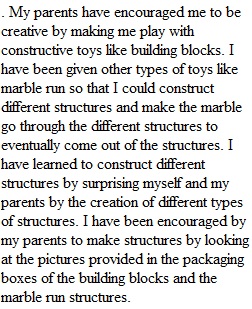


Q Introduction How might our daily interactions with technology change our abilities to create? How much of our creative potential is innate? Although much of this research is in its earliest stages, the questions they are asking may have a profound impact on our problem-solving abilities. This activity aligns with module outcome 1. Discussion Questions Prepare for your discussion by reviewing the required readings and videos described in each discussion topic. Respond to one of the following questions. 1. After reviewing the information in Chapter 8 of Explaining Creativity on artificial mathematicians and artificial writers, viewing works by Aaron (the robot artist) and hearing some EMI music compositions, think of ways that your computer might collaborate with you in being creative. If you view your computer as just a glorified tool, what possibilities might you be missing? Perhaps you already use computer programs to draw, paint, design or write music. Please evaluate how these programs influence your creative process or the products you create. 2. Reflect on the ways your parents encouraged or failed to encourage your creative abilities while you were growing up. If they had not encouraged you, do you think you would be just as creative now? Do you think you would be more creative if you had received more encouragement as a child? Why or why not? How might encouragement enhance the potential for creativity? 3. If you have made extensive use of voice activated software (such as Dragon Naturally Speaking) or prefer to use pen/pencil and paper for most of your written assignments, how is the experience of writing different when you are typing while using word processing software? Evaluate the similarities and differences between using software, hand writing, and speaking in the potential for creativity. 4. Discuss and evaluate some of the ideas found in “Embodied Metaphors and Creative Acts.” In addition, think about when you are in the process of creating something, how do you experience connections between concrete bodily experiences and creative cognition as described in the article on “Embodied Metaphors and Creative Acts?” For example, when you seem to be stuck on some aspect of a problem, how might you consider using movement to enhance your creative problem solving abilities? Would you consider going for a walk? Would you schedule a walking meeting with a colleague as a means of seeking solutions to a problem? How might movement enhance the potential for creativity?
View Related Questions